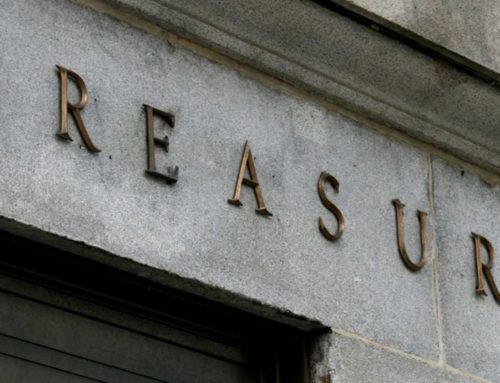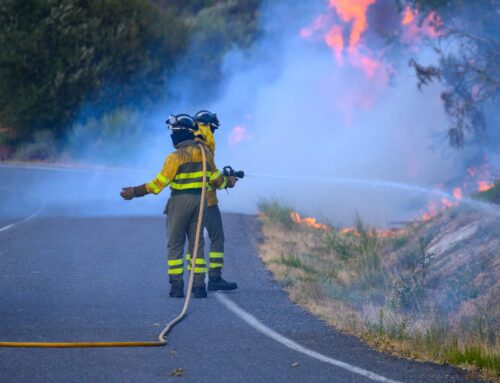With critical deadlines looming and major legislation hanging in the balance, TCS President Steve Ellis and Director of Policy Josh Sewell dive into what’s at stake during Congress’s lame duck session. They break down the pressing December 20th government funding deadline, the stalled Farm Bill reauthorization, and the likelihood of an emergency supplemental spending bill for recent disaster relief. Whether you’re concerned about government spending or just want to understand what’s happening in Washington, this timely discussion cuts through the partisan rhetoric to deliver the facts about the critical decisions facing Congress in its final weeks of 2024.
Transcript
Announcer:
Welcome to Budget Watchdog All Federal, the podcast dedicated to making sense of the budget spending and tax issues facing the nation. Cut through the partisan rhetoric and talking points for the facts about what’s being talked about, bandied about and pushed to Washington, brought to you by taxpayers for common sense. And now the host of Budget Watchdog AF TCS President Steve Ellis.
Steve Ellis:
Welcome to All American Taxpayers Seeking Common Sense. You’ve made it to the right place for nearly 30 years. TCS that’s taxpayers for common sense, has served as an independent nonpartisan budget watchdog group based in Washington DC We believe in fiscal policy for America that is based on facts. We believe in transparency and accountability because no matter where you are in the political spectrum, no one wants to see their tax dollars wasted. With the 2024 presidential and congressional elections now behind us and the nation processing significant changes in Washington’s political landscape, attention turns to the critical work ahead in Congress’s Lane Duck session to better understand what’s at stake during these final weeks of the hundred 18th Congress and how the recent election results might impact key decisions. We’re speaking with TCS Director of Policy and research, Josh Sewell. Josh, thanks for being here.
Josh Sewell:
Hey Steve. Happy to be here. I do have to admit though, I just have a eye twitch. I’m not sure if it’s the election or the lame duck, but something’s going on.
Steve Ellis:
Good thing it’s not a video podcast, Josh. Alright, hope you feel better. While the team here at TCS has been closely monitoring the election results and we’ll opine on the future of the likely possible implications, let’s deal with the president, Josh, with the hundred 18th Congress entering its lame duck session, what makes this period so crucial? What major deadlines are approaching, for instance, on December 20th?
Josh Sewell:
Yeah, well, I mean lame ducks are just a really interesting thing when you work on the government. So here we are in this period where voters have chosen a new Congress and obviously a Senate and a president. We don’t even at this point actually know the full makeup of the next Congress, but we know there’s going to be a lot of people who are here now that aren’t going to be here next year. But those people who aren’t going to be here next year are still in charge for two months about making decisions. And so these lame ducks can provide for major bills that go through. I think back in 2018, the lame duck Congress then passed a farm bill that set policy for five years and then was extended. So now it’s been six and it may be extended again. We’ll be seven years of policy established by some folks who many of them were not around to see the implications of their policies, at least at the federal level. And so it just really brings up a real good question of what does Congress have to do now versus what should they not do in a lame duck, especially when there are, as you mentioned, a few things that they do have to do. One thing which is the government funding expires on the 20th.
Steve Ellis:
What’s shocking to think about is that in the earlier days of our Republic, it was not until March that they actually changed power. And so it was even longer. Now granted people were traveling long distances to get here, et cetera. But anyway, I digress. So certainly the CR funding government, that’s a big deal, obviously something where they’re going to have to do something, either another CR or they’re going to get all the appropriations done. What are some of the other significant items on the agenda? You mentioned the farm bill, so can you explain a bit how that’s evolved on its original purpose and why it’s making it so difficult to pass?
Josh Sewell:
Sure. So as I mentioned, the last farm bill was adopted in 2018 and authorized for five years. So that bill would’ve expired at the end of 2023 and Congress was unable to come to an agreement, so they extended it for one year. Here we are passed that one year extension and the farm bill has expired yet again. The main issue right now is that we call it the farm bill, but if you’ve listened to some of our other podcasts, you may be aware of that it does a lot more than just hand out farm subsidies or subsidies to farmers or people who are involved in farming. A big part of it is that over the years the bill has expanded, been expanded by Congress to get more political, and as you are probably also aware, one of the big ones was conservation was added in 1985 that really got a lot of the environmental community invested in the farm bill. But the real big one was back in 1973 when the major nutrition programs, which at the time was food stamps and has been renamed to the supplemental nutrition assistance program, was added to the bill. And I don’t know if you have any idea why you would add SNAP to or I should say food stamps at the time to a bill focused on farm subsidies, but as someone who’s worked in government, do you have any ideas, Steve?
Steve Ellis:
Well, you bring in the Aggies and you bring in the urban people together, which is where most of the food stamps were going. And now you have this unholy alliance that is able to jam through this piece of legislation.
Josh Sewell:
Exactly. And in a business as usual congress, which is how Congress tries to be, I think oftentimes that coalition worked. And so you had the Aggies and you had the urban folks for the most part uniting together to oppose major changes to either side. So if you really cared about nutrition, you locked alarms with the Aggies and opposed anything that would harm their interests. And again, that’s why you added conservation in 85 to certain extent to meet a need. But also it’s really helpful if you could meet a need while also patting your own political support as someone who shepherds a bill through. But that frankly, that coalition since I’ve been working on farm has not every farm Bill has gotten more and more contentious and partly because nutrition is now more than 80% of the cost of the bill. And so it’s a major driver, it’s a major important bill for a lot of constituents, but the interest of many Republicans especially to cut that part of the bill causes problems in that coalition
Steve Ellis:
And not to turn this into a Farm Bill podcast, we’ll certainly have more of those going forward. But I mean it is interesting too in the fact that a lot of the SNAP benefits are not, we talk about it as an urban issue, but a lot of the SNAP benefits are actually going to rural areas now. And so you wonder about how that plays out going forward.
Josh Sewell:
Yeah, you do. I mean, it’s one of the programs, one of the few programs that you can say literally touches every congressional district. And so there are some major interests behind it and a lot of people want to see it work. But at the same time, when you have a number of individuals who want to reign it in as they would say, or to focus it in a different way, it’s just hard to find agreement. So the end is that here we are another time yet another year where the farm bill has expired and many of those programs don’t have authority to spend money spend anymore spend. So they’re going to have to do something at some point. And the thought was that maybe the political tea leaves would all change and certain dominoes would fall and you could have a farm bill done in lame duck. It just seems harder and harder to do that. So we got our ice peel to see if something may happen here in the lame duck, but in all likelihood, this is going to be another fight for the 119th Congress to figure out how to move forward
Steve Ellis:
Or eyes twitching in your case. Yes. Alright. So the Farm bill is not the only big package that is pending reauthorization. There’s also the National Defense Authorization Act, which as you know has been approved every single year since 1961 and it seems unlikely that they’re not going to get it done. But what is going on there, Josh?
Josh Sewell:
Well, like you said, the Defense Authorization Act, so it’s an authorization bill. It doesn’t technically spend money, but it does give direction, provide the direction of Congress, at least portions of Congress. There may be some disagreements between the authorizers and the actual appropriators who sent out the money, but it sets policy for the Pentagon and the defense agencies and it also authorizes how much money will go to certain weapons programs and it can make some of those changes there. And a major tension in this particular year is that in the Senate, we’ve Congress for two years now has been operating under spending caps in order to avoid a government, not a government default. Part of the budget agreement in the spring, late spring, early summer of last year was to set discretionary spending caps for defense and non-defense for two years. Well, congress doesn’t like to, they cha under the spending caps. And so in the Senate they’ve actually authorized spending that 25 billion more than what they had just agreed to as a cap to terrain in spending. And so there’s a real tension there of how do you come to an agreement when one chamber wants to spend significantly more than the other and actually not even spent, it’s just on the authorization bill. And so you’re going to have a similar tension in the spending bills as well.
Steve Ellis:
And that was really driven by Senator Wicker who’s going to be the incoming chair of the Senate Armed Services Committee Republican from Mississippi. And 25 billion in almost any other part of government is a huge amount of money. It’s bigger than certain agencies and such, but the Pentagon, it’s got 826 billion. So it’s just kind of a little bump up, but one of the things that’s kind of caught our eye this year is what other huge area of spending has eclipsed the Pentagon? Josh, tell our listeners,
Josh Sewell:
And this is something that I find shocking even though I’ve been working on these issues for a long time, is the interest that the federal government, we as taxpayers pay on our debt, has exceeded the cost of defense
Steve Ellis:
By a lot.
Josh Sewell:
Oh, by a lot. It’s 950 billion about is what we spent in 2024 and we spent almost a hundred billion less roughly on actually more than a hundred billion. I guess it was 826 billion in the base budget for defense spending compared to 950 billion in interest. It’s amazing. So the biggest government agency is debt service.
Steve Ellis:
And the thing is that that’s just going to, I mean that’s all already approved spending. That’s already bonds that we’re paying interest on out the door and that’s going to continue to grow even if we do reign in spending to some extent, it’s going to take a long time for that to actually shrink and that’s just going to continue to grow to exceed a trillion dollars that’s just going out the door servicing our debt. It’s really staggering.
Josh Sewell:
And one of the things that when you think ahead is it’s based on current interest rates. The 800, excuse me, the 950 billion we spent over the last year were the interest rate at the level they were for the last year. So maybe we’ll be lucky and interest rates will go down at some point, but interest rates also go up. And so even if they just go up a little bit, it can have a massive swing in the tens to eventually hundreds of billions of dollars in additional spending that we’re going to have to do just for not to get anything just to pay for spending decisions in the past.
Steve Ellis:
It’s really staggering. It really is staggering. But let’s talk about more spending, Josh. There’s also talk about an emergency supplemental that would be in addition to any CR or omnibus appropriations and what are they talking about that and what’s driving that, Josh?
Josh Sewell:
So what’s driving the discussion about an emergency supplemental now is the hurricanes that came through the southeast now it’s a couple months ago, and the massive devastation in Western North Carolina. So I think especially when you have a disaster in an area where is either not used to disasters or it’s in a historic level of disaster as the flooding was in a lot of places in western North Carolina, it really gets Congress, the public and Congress focused on providing money to assist those folks. A challenge though is emergency supplementals are almost as near and dear to my heart as farm bills because they attract a lot of things. And I think the real challenge now is that especially in the lame duck, what do you have to spend money on? What do people want to spend money on and how do you even have the time to do it to figure out where to spend money? And so those discussions are really starting right now.
Steve Ellis:
And so I mean, yeah, there’s going to be a lot of things that are going to hitch their wagon or try to hitch their wagon to any kind of emergency supplemental. One of the things that is most likely to pass simply because the Disaster Relief fund has been put under strain by Helene and Milton as you mentioned. And so the small business administration loan program has been exhausted. And so those are all things where Congress is not going to want to wait until 2025 to act, they’re going to want to do this in the lame duck. If you have that train moving through the Capitol Hill Station, things are going to try to hitch onto that caboose.
Josh Sewell:
And this is where you get the real two big issues. I think that makes a lame duck Congress even trickier perhaps to address an emergency supplemental is that the spending is not offset, right? I mean that’s why it’s called an emergency. There are no budgetary mechanisms currently that require this spending to be offset by their increases in revenue somewhere else or a cut in preexisting spending or projected spending. And so it’s considered free money by some folks and it’s free money to people who aren’t going to be around to bear the electoral consequences of that action. It’s almost two strikes against fiscal responsibility because they’re not going to be here. They either are moved to another elective office or maybe they’re retiring. And so you don’t necessarily have the same scrutiny. And I think we could talk, actually, lemme rephrase it. I know we could talk because we have for hours about what we should do instead of a supplemental and some of the things that have happened the unto things that have happened in past supplementals.
But the fact is they can lead to very bad spending under the cover of very good spending. And so I just would caution this Congress definitely, as you mentioned, there is a definite need for some DRF funding at FEMA to cover just the short term at the very least for people who have true immediate needs right now and the small business administration and a couple other places. But as you before my time at TCS, you worked on Katrina recovery and if you can correct me, but I’m pretty sure the tens of billions we spent there wasn’t all just sent all at once. Congress took a lot of bites of that apple.
Steve Ellis:
They did. They came back and in August they appropriated a bunch of money, then a bunch more, and then they kept going for years. And certainly that was a more responsible approach. I mean it was an enormous disaster, obviously a huge tragedy. And I’m not saying that if your home is flooded, it’s a tragedy for you no matter what. It’s enormous tragedy, but certainly Katrina was ipo.
Josh Sewell:
Yeah, but I think one of the big lessons is that to help truly help recover from disaster, you don’t have to make a blank check and just send it out there. Congress has the ability and the responsibility to provide assistance, but then to come back and make sure in numerous bite of that apple and figure out, because we don’t want to overspend or underspend in some of these areas.
Steve Ellis:
Exactly. Alright, so we’ve been concentrating on the lame duck, but there’s another deadline that I’m looking ahead towards that is important from a taxpayer’s perspective. And certainly we were talking about interest on the debt and that’s the January 2nd, which is when the debt ceiling will be reset. Can you explain what’s going on with that and what needs to be done and does it have to be done in January?
Josh Sewell:
And this goes back to that budget deal that was signed back,
Steve Ellis:
Fiscal Responsibility Act. There
Josh Sewell:
You go in the name. The idea was to become more responsible with in our fiscal situation. And so this is a bid that Congress made for itself. Again, a previous Congress when you come into the next one. But what happens is when the new Congress comes in, essentially our debt ceiling, which is the limit on the amount of debt our country can take out, we’ll be reset to whatever it is on that day. And so whatever amount we have in accumulated debt that becomes new debt ceiling. And then immediately what will happen is the Department of Treasury will start using what’s known as extraordinary measures to not breach that. And so they can basically shift funds around and you don’t make certain payments that you will make later in the year, but you can delay them. And even things like contributions, h agency contributions to federal employees, pensions, they don’t make those immediately. They will save those and do those in bulk later in the year, essentially moving your cash around your accounts to pay certain bills and not others. But those measures, if history is a guide, we’ll probably give some breathing room until June or July of this year. So that gives Congress time to settle in and they’ll have to raise the debt ceiling again, which brings up again another major discussion about the budget and the appropriations and all the other things that a new Congress will want to do in those first couple months.
Steve Ellis:
And that should be next year, that 2025, not this year, but yeah, and I would assume that most likely it would be another suspension because otherwise you have to approve a couple trillion dollars worth of additional debt and that never looks good. And I would assume with the new Congress, they’re going to try to avoid that. And the best way to do that is you just suspend it like they did this time.
Josh Sewell:
Yeah, you just close your eyes to the spending implications of the dead implications of the spending that you’re doing for some of your other priorities in the first two months of a Congress.
Steve Ellis:
Exactly. Okay, so we’ve laid the table of these pressing issues. So what’s your prognosis? How productive do you think this lame duck and how generally are lame ducks? How productive are they? What do you think is going to happen with appropriations, with the Farm Bill, with the NDAA? What are we looking at with disaster supplemental?
Josh Sewell:
I don’t think much is going to happen. And I think if you go through the podcast we’ve done, I was way off on some predictions and I’ve been pretty close on other ones, but I just think a combination of, we don’t even know who’s going to control the house at the taping of this right now. And so that does have an implication as to the inclination of sitting members and leadership to make a deal now versus pushing it into the next Congress. Because an advantage too, if you’re Republicans, they’ll have full control if they have full control in theory, they could have actual control over how to change some of the spending and get a sort of a headstart by dealing with, if you push a CR into next year, then they can finish the spending bills for the current fiscal year next year, get a headstart on some of the things that they want to do.
But I think also, frankly, I think maybe this is just my farm bill friends channeling through me, but I think there’s some exhaustion with this Congress and in this Congress and so there’s a rejuvenated desire to have some of these debates next year, again, under a slightly different, well, very different in the Senate, but also perhaps a slightly different makeup or a very different makeup in the house. And so I just don’t think there’s a lot of political capital right now or maybe even much desire to make major changes like passing a farm bill or actually passing each appropriations bill. No, there’s no way that’s going to happen. And the speaker has said, we’re not going to do an omnibus. So if you don’t have time to pass the bills, you’re not going to do an omnibus. Your only solution unless you want to shut down the government is to pass a CR for some amount of time,
Steve Ellis:
Which is a bad outcome for government as we’ve talked about, operating under a continuing resolution. I mean, it would assume it would be till March or something like that for the first half of the fiscal year. You inevitably have waste and hamstring agencies, and even if any changes they’re going to make are going to be relatively marginal, they’re not going to be huge sweeping changes, I would think. But anyway, I think your prognostication about basically an extension of a CR till say March, and just an extension of the Farm bill, the emergency supplemental will go through in some form. The NDAA, I think as you pointed out, it’s a policy bill, it doesn’t really spend money. There’s certainly some issues between the House and the Senate as far as some of the policy issues, but the chairs and the ranking members of has the House Armed Services Committee and SaaS, the Senate Armed Services Committee can generally align on all that stuff and kind of clear the deck and they’re going to have another NDAA in 2025, so they can easily deal with those at that point as well.
Josh Sewell:
Yeah, and that’s a good point is a lot of this stuff does come back next year, and so there may be a desire to finish this chapter and move on to the next, but I think regardless because of the CR situation that we think is going to go through March, and most people think the next Congress, they may spend the first two months on, especially if it’s Republican controlled on their priorities, which would be something in immigration most likely, and then something in tax cuts and job back extension and who knows what else. But if you spend all that time, the things that you might like to spend on or you really want to spend your time on, come March, it’s back to the same old problems. And here we are again and we’ve got to start getting to the business of government. And the one thing they absolutely have to do under the constitution, which is fund our government and write those checks,
Steve Ellis:
There’s this interest of, there’s change of power of actually trying to make their effect and so delaying things. But in the end, my experience is it doesn’t change that much. And you’re better off clearing the decks and going forward with your own policy plans and not having to deal with the previous Congress’s mess. But I don’t get to make the decisions here. And so we’ll see exactly what plays out. But it is something where if they want to hit the ground running, it’s better off not having to deal with the fiscal year 2024 spending bills and the fights that are going to be about that, because inevitably, there’ll be fractures within their, if the Republicans retain control in the house within their conference, there’ll be fractures and people who want to make their mark. And you’re already starting out right at the very beginning with intraparty fights, and that’s just not a good place.
Josh Sewell:
And so there’s uncertainty certainly in our future, but I think whatever happens, we’re here, we’re going to be working in this lame duck. I don’t have any leave requests for the next couple months, so we’re going to be doing what we need to do to finish the bills that are out there, and then we’re getting ready for the next Congress and the next administration because we never go away because the interest we’re never going to go away.
Steve Ellis:
No, you’re right there, Josh. And next year budget watchdog, AF Faithful will be our 30th year taxpayers for common sense. And so we have been at it through a variety of administrations and a variety of different leadership in Congress, and we’re going to keep at it, and it’s going to be really critically important. And we mentioned how the debt is growing dramatically and how the interest on that debt, and so it’s really important to make these hard decisions, to hold power accountable and to fight for transparency and accountability. TCS, director of Research and Policy, Josh Sewell, great perspective and insight. Thanks for being here.
Josh Sewell:
Yeah, thanks for having me again. I appreciate it.
Steve Ellis:
Well, there you have it. Podcast listeners, heads up for the lame duck. This is the Frequency Market on your dial, subscribe and share and know this taxpayers for common sense has your back America. We read the bills, monitor the earmarks, and highlight those wasteful programs that poorly spend our money and shift long-term risk to taxpayers. We’ll be back with a new episode soon. I hope you’ll meet us right here to learn more.










